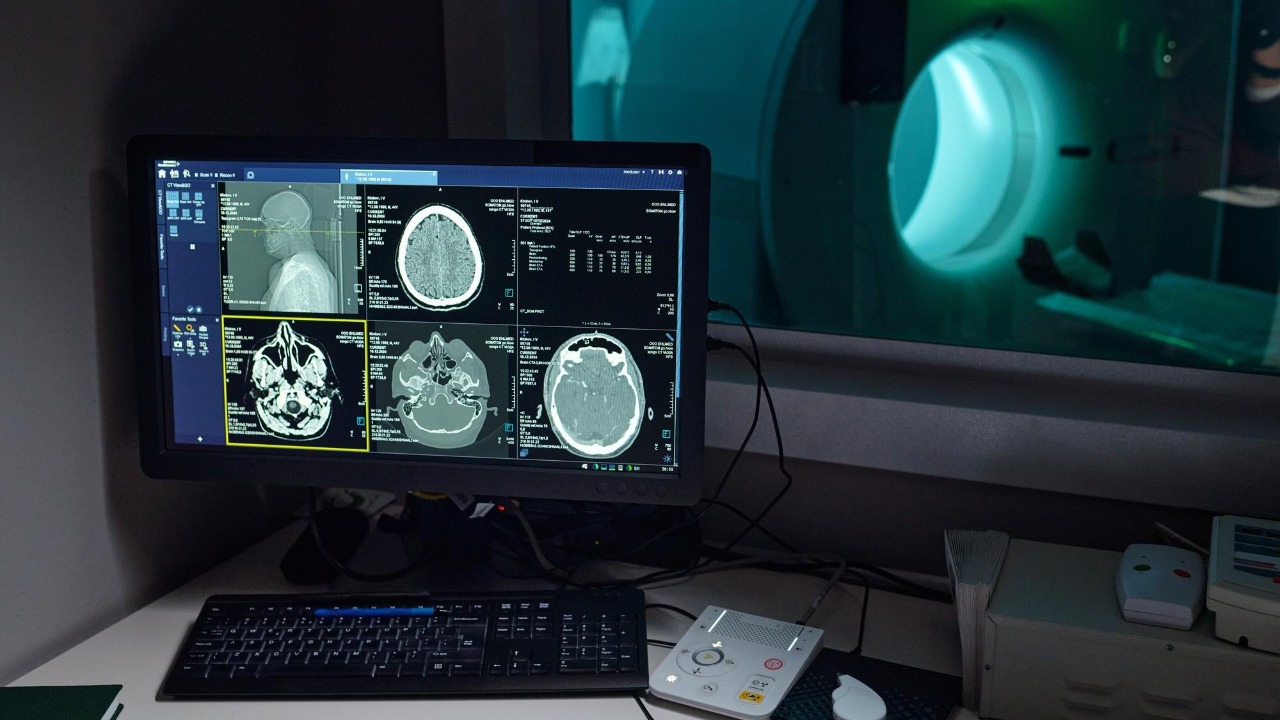As the boundaries between human and machine increasingly blur, the concept of AI-brain fusion emerges as a tantalizing prospect with profound implications. Merging artificial intelligence with human cognition could redefine what it means to be human, touching on the ethical, psychological, and societal dimensions of this potential revolution.
The Science of AI-Brain Fusion

The realm of AI-brain fusion is at the forefront of technological innovation, driven by advancements in neural interfacing and AI integration. Recent studies, such as those by Oluwaseyi Oladele, delve into computational neuroscience and deep learning, exploring how these disciplines can reverse-engineer the brain to achieve a more integrated AI-human interface. This research highlights the potential for creating systems that not only enhance human capabilities but also open new avenues in understanding consciousness.
Technological breakthroughs are crucial to making AI-brain fusion a reality. These include improving AI’s cognitive capabilities and achieving seamless integration with the human brain. Companies like Neuralink are pioneering brain-machine interfaces, aiming to enhance cognitive functions through direct neural interfacing. Meanwhile, the concept of technological singularity, as discussed by IBM, suggests a future where AI could surpass human intelligence, further blurring the lines between organic and artificial cognition.
The feasibility of achieving a seamless AI-brain integration depends on overcoming significant technical challenges. These range from developing more sophisticated neural interfaces to ensuring real-time data processing and communication between AI systems and the human brain. The convergence of neuroscience and AI could lead us to new frontiers where human thought processes are augmented or even transformed by artificial intelligence. However, the journey to this integration is complex and fraught with both opportunities and obstacles.
Redefining Human Consciousness

The fusion of AI and human cognition could fundamentally alter human consciousness and perception. Research from ScienceDirect on cognitive enhancements suggests that integrating AI with the human brain could lead to unprecedented changes in how we experience the world. By potentially expanding cognitive capabilities, individuals might access enhanced memory, quicker decision-making processes, and a deeper understanding of complex concepts.
This transformation raises questions about identity and self-awareness in a post-fusion world. As AI becomes an integral part of human cognition, traditional notions of personal and collective identity may undergo profound shifts. The fusion of human and machine intelligence could lead to a new form of consciousness where the boundaries between self and technology become increasingly porous. Philosophical discussions on the nature of self and consciousness will likely gain new dimensions, as humanity grapples with the implications of sharing cognitive space with artificial entities.
In this evolving landscape, the philosophical implications are vast. Questions regarding the essence of human nature, the continuity of personal identity, and the moral status of AI-enhanced beings will become central to academic and public discourse. As AI-brain fusion challenges the traditional understanding of consciousness, it may also redefine the parameters of human coexistence with technology, prompting a reevaluation of what it means to be human in an increasingly digital world.
Societal and Ethical Implications

The integration of AI with human cognition promises to bring significant societal changes, influencing employment, education, and social structures. As AI-brain fusion becomes more prevalent, traditional job roles may evolve, with AI-enhanced individuals taking on tasks that require augmented cognitive abilities. This shift could lead to the emergence of new professions and educational paradigms, as society adapts to the capabilities of AI-integrated humans.
Ethical dilemmas are inherent in the AI-brain fusion debate. Issues surrounding consent, privacy, and autonomy are at the forefront, as highlighted in contemporary AI ethics literature. The potential for invasive technologies to access and manipulate human thought raises concerns about individual privacy and the potential for misuse. Ensuring that these technologies are developed and implemented responsibly will require robust ethical guidelines and regulatory frameworks.
Regulatory and governance frameworks will play a critical role in managing the integration of AI with human cognition. Policymakers and technologists must collaborate to create standards that protect individual rights while encouraging innovation. As the line between human and machine becomes increasingly blurred, establishing clear ethical and legal boundaries will be essential to ensuring that AI-brain fusion benefits society as a whole.
Future Prospects and Speculations

Speculating on the future of human evolution post-AI-brain fusion reveals a landscape filled with both promise and peril. Current scientific predictions suggest that enhanced human capabilities could lead to significant strides in areas such as problem-solving, creativity, and even empathy. However, the potential loss of individuality and the risk of creating a homogenized human experience remain critical concerns.
Potential benefits of AI-brain fusion are vast, including the ability to tackle complex global challenges with enhanced cognitive resources. However, these advancements also come with risks, such as exacerbating existing inequalities or creating new societal divides between those with and without access to cognitive enhancements. Balancing these benefits and risks will require careful consideration and proactive measures to ensure equitable access to AI-enhancing technologies.
Insights from experts and futurists offer a glimpse into the long-term impact of AI-brain fusion on humanity’s trajectory. As we stand on the brink of this technological revolution, the choices we make will shape the future of human evolution. By navigating the challenges and embracing the opportunities presented by AI-brain fusion, we may redefine human identity and unlock new potentials for both individuals and society as a whole.